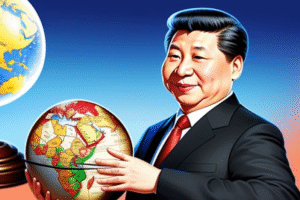$SPY $EURUSD $IXIC #EuropeUSRelations #InternationalDiplomacy #GlobalPolitics #IsraelIran #EU #GeopoliticalTensions #MatteoRenzi #FormerPM #TrumpComments
Why Should Europe Rethink Its Strategy with the U.S. for Stronger Ties?
In light of recent global events and geopolitical tensions, the importance of strategic alliances has never been more evident. Former Italian Prime Minister Matteo Renzi emphasized the need for Europe to “wake up” in the context of its increasingly complicated relations with the United States. This statement comes amidst comments from former U.S. President Donald Trump, who expressed skepticism about the EU’s role in resolving the Israel-Iran conflict. This highlights a broader context of transatlantic diplomacy requiring urgent reassessment.
The Current State of Transatlantic Relations
Europe’s diplomatic stance with the U.S. faces significant scrutiny. The pressing need for a cohesive strategy is underscored by the complex nature of international politics today. Europe’s approach to these relations needs a thorough reevaluation to ensure that it can effectively address and collaborate on global crises and conflicts.
Strategic Implications for Europe
A recalibrated strategy could bolster Europe’s influence on the global stage, particularly in dealing with Middle Eastern conflicts. Moreover, stronger ties with the U.S. could enhance Europe’s ability to negotiate and mediate in international affairs, providing a more unified front in geopolitical issues.
Economic Considerations
From an economic perspective, enhanced cooperation between Europe and the U.S. could lead to more robust trade agreements and economic partnerships. This can potentially stabilize markets and lead to growth, which is crucial in times of economic uncertainty. For more insights into how these dynamics affect global markets, one can explore further details on international stock exchanges.
Looking Ahead: Opportunities and Challenges
As Europe contemplates its next moves, the opportunities for forging a stronger relationship with the U.S. are vast. However, the challenges are equally formidable. Effective communication, shared objectives, and cultural understanding will be key components in crafting a strategy that benefits both parties and addresses broader international concerns.
In conclusion, Europe must consider a strategic pivot in its relations with the U.S. to enhance its role on the world stage and effectively contribute to resolving global conflicts. This reassessment is not merely beneficial but necessary in the face of evolving geopolitical landscapes and the complex web of international relations today.







Comments are closed.